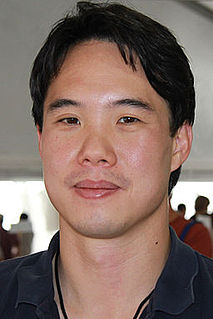A Quote by Paul Johnson
The study of history is a powerful antidote to contemporary arrogance. It is humbling to discover how many of our glib assumptions, which seem to us novel and plausible, have been tested before, not once but many times and in innumerable guises; and discovered to be, at great human cost, wholly false.
Related Quotes
Philosophy is a necessary activity because we, all of us, take a great number of things for granted, and many of these assumptions are of a philosophical character; we act on them in private life, in politics, in our work, and in every other sphere of our lives -- but while some of these assumptions are no doubt true, it is likely, that more are false and some are harmful. So the critical examination of our presuppositions -- which is a philosophical activity -- is morally as well as intellectually important.
How many times have I failed before? How many times have I stood here like this, in front of my own image, in front of my own person, trying to convince him not to be scared, to go on, to get out of this rut? How many times before I finally convince myself, how many private, erasable deaths will I need to die, how may self-murders is it going to take, how many times will I have to destroy myself before I learn, before I understand?
This is the first time in history that a war has involved the whole world, and also it may last many years more; this thought is soul-shattering for all of us as human beings. It is horrible to think that the crimes committed by this one man Hitler have these many years been destroying the lives of hundreds of thousands and millions, and one would despair entirely were it not certain that the majority, the innumerable majority which opposes him openly or secretly, will succeed in wiping out once and for all him and his.
Among the innumerable monuments of architecture constructed by the Romans, how many have escaped the notice of history, how few have resisted the ravages of time and barbarism! And yet even the majestic ruins that are still scattered over Italy and the provinces, would be sufficient to prove that those countries were once the seat of a polite and powerful empire.
Where today are the Pequot? Where are the Narragansett, the Mohican, the Pokanoket, and many other once powerful tribes of our people? They have vanished before the avarice and the oppression of the White Man, as snow before a summer sun. Will we let ourselves be destroyed in our turn without a struggle, give up our homes, our country bequeathed to us by the Great Spirit, the graves of our dead and everything that is dear and sacred to us? I know you will cry with me, 'Never! Never!'
Once, in my father's bookshop, I heard a regular customer say that few things leave a deeper mark on a reader than the first book that finds its way into his heart. Those first images, the echo of words we think we have left behind, accompany us throughout our lives and sculpt a palace in our memory to which, sooner or later—no matter how many books we read, how many worlds we discover, or how much we learn or forget—we will return.
And his paths shall be many, and who shall know his name, for he shall be beorn among us many times, in many guises, as he has been and ever will be, time without end. His coming shall be like the sharp edge of the plow, turning our lives in furrows form out of the places where we lie in our silence. The breaker of binds; the forger of chains. The maker of futures; the unshaper of destiny. -from Commentaries on the Prophecies of the Dragon, by Jurith Dorine, Right Hand to the Queen of Almoren, 742 AB, the Third Age
Sorry, I said to myself, wondering how many times in my marriage I'd said that, how many times I'd meant it, how many times Claire had actually believed it, and, most important, how many times the utterance had any impact whatsoever on our dispute. What a lovely chart one could draw of this word Sorry.
Dialogue is a space where we may see the assumptions which lay beneath the surface of our thoughts, assumptions which drive us, assumptions around which we build organizations, create economies, form nations and religions. These assumptions become habitual, mental habits that drive us, confuse us and prevent our responding intelligently to the challenges we face every day.
No matter what we have come through, or how many perils we have safely passed, or how many imperfect and jagged - in some places perhaps irreparably - our life has been, we cannot in our heart of hearts imagine how it could have been different. As we look back on it, it slips in behind us in orderly array, and, with all its mistakes, acquires a sort of eternal fitness, and even, at times, of poetic glamour.

































